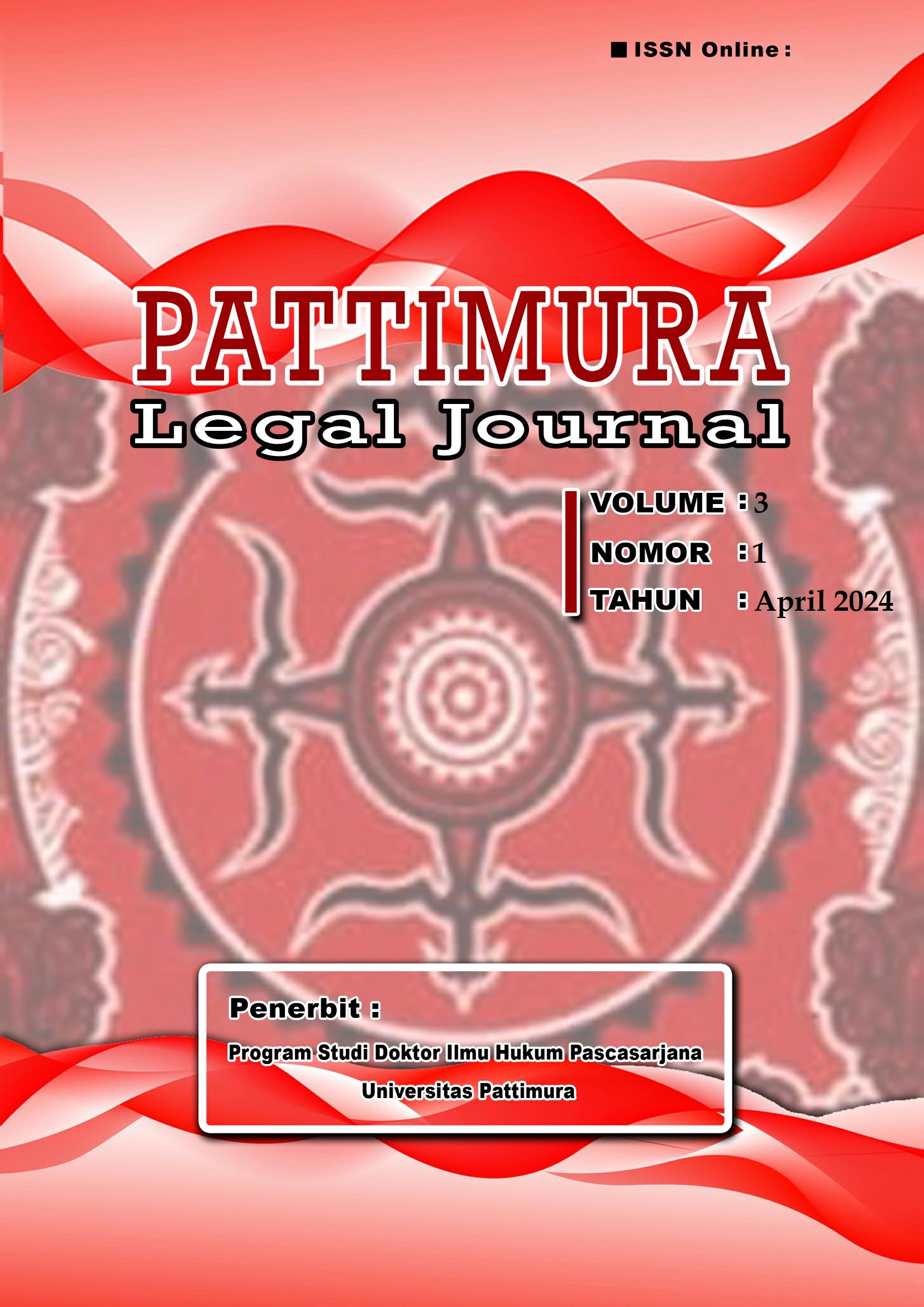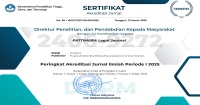Perlindungan Hukum Netflix Atas Penjualan Akun Premium Di Media Sosial
Abstract
Introduction: Netflix application as a copyrighted work that is protected in Law Number 28 of 2014 concerning Copyright. Article 9 Paragraph (1) point b and e regulates that the duplication of creation in all its forms and the distribution of creation or copies thereof are the rights of the creator, but in the development of the digital world today Netflix premium accounts are often offered not by Netflix for sale.
Purposes of the Research: Analyze Netflix's legal protection of selling premium accounts on social media.
Methods of the Research: The research method used is Normative Juridical, the research approach uses a statutory approach and a conceptual approach. The source of legal materials is in the form of premier legal materials, secondary legal materials and tertiary legal materials. The technique of collecting legal materials in this study through literature studies, then analyzed qualitatively.
Results of the Research: As a result of this research, the sale of Netflix premium accounts through social media is an infringement of copyright. The form of legal protection that can be taken by Netflix is in the form of preventive legal protection and repressive legal protection. Preventive legal protection is contained in Article 54 of Law Number 28 of 2014 concerning Copyright and in the form of a complaint column on the Netflix website for reporting copyright infringement provided by the Netflix Application. Meanwhile, repressive legal protection is contained in Article 55 of Law Number 28 of 2014 concerning Copyright. Legal efforts taken by the Netflix application with the settlement of litigation in the form of a lawsuit for compensation and a report on the closure of content or rights.
Downloads
References
Jurnal
Dewi Tuti M dan B. Rini Heryanti, Pengaturan dan Penyelesaian Sengketa Non Litigasi Perdagangan, Dinamika Sosbud, Vol. 13 No. 1, 2011.
Dinda Sekar Puspitarini dan Reni Nuraeni, Pemanfaatan Media Sosial Sebagai Media Promosi (Studi Deskriptif Pada Happy Go Lucky House), Jurnal Common, Vol. 3 No.1 Juni 2019.
Haryano dan Sutono A, Pengakuan dan Perlindungan Hak Cipta: Tinjauan Secara Filosofis dan Teoritis, Jurnal Ilmiah CIVIS, Vol 6, No 2, Tahun 2017.
Muchtar A H Labetubun, Perlindugan Hukum Desain Industri Di Dunia Maya (Kajian Overlaping Antara Hak Cipta Dengan Hak Desain Industri), Jurnal Sasi 17, No. 4 bulan oktober-desember 2011: 8-19.
Nurhaidah dan M. Insya Musa, Dampak Pengaruh Globalisasi Bagi Kehidupan Bangsa Indonesia, Jurnal Pesona Dasar, Vol.3 No. 3 April 2015
Buku
Normin Pakpahan, Naskah Akademis RUU Tentang Arbitrase, Jakarta: ELIP, 2003.
Philipus M. Hadjon, Perlindungan Hukum Bagi Rakyat Indonesia: Sebuah Studi Tentang Prinsip-Prinsipnya, Penanganannya Oleh Pengadilan Dalam Lingkungan Peradilan Umum Dan Pembentukan Peradilan Administrasi, Surabaya: Peradaban, 2007, h. 39.
Online/World Wide Web, Dan Lain-Lain
Hieronimus Patardo [2019, 28 feb], Layanan Streaming Netflix Paling Banyak Dibajak Ketimbang Kompetito, https://www.tek.id/culture/layanan-streaming-netflix-palingbanyak-dibajak-ketimbang-kompetitor-b1Xbv9dBJ.
Pangkalan Data Kekayaan Intelektual (PDKI), www.pdki-indonesia.dgip.go.id
www.netlix.com.
Copyright (c) 2024 Veldha Arabella Latulola, Sarah Selfina Kuahaty, Theresia Louize Pesulima (Author)

This work is licensed under a Creative Commons Attribution-NonCommercial 4.0 International License.
Authors who publish their manuscripts in this Journal agree to the following conditions:
- The copyright in each article belongs to the author, as well as the right to patent.
- Authors are able to enter into separate, additional contractual arrangements for the non-exclusive distribution of the journal's published version of the work (e.g., post it to an institutional repository or publish it in a book), with an acknowledgment of its initial publication in this journal.
- Authors are permitted and encouraged to post their work online (e.g., in institutional repositories or on their website) prior to and during the submission process, as it can lead to productive exchanges, as well as earlier and greater citation of published work.
- Authors have the right to self-archiving of the article (Author Self-Archiving Policy)






















